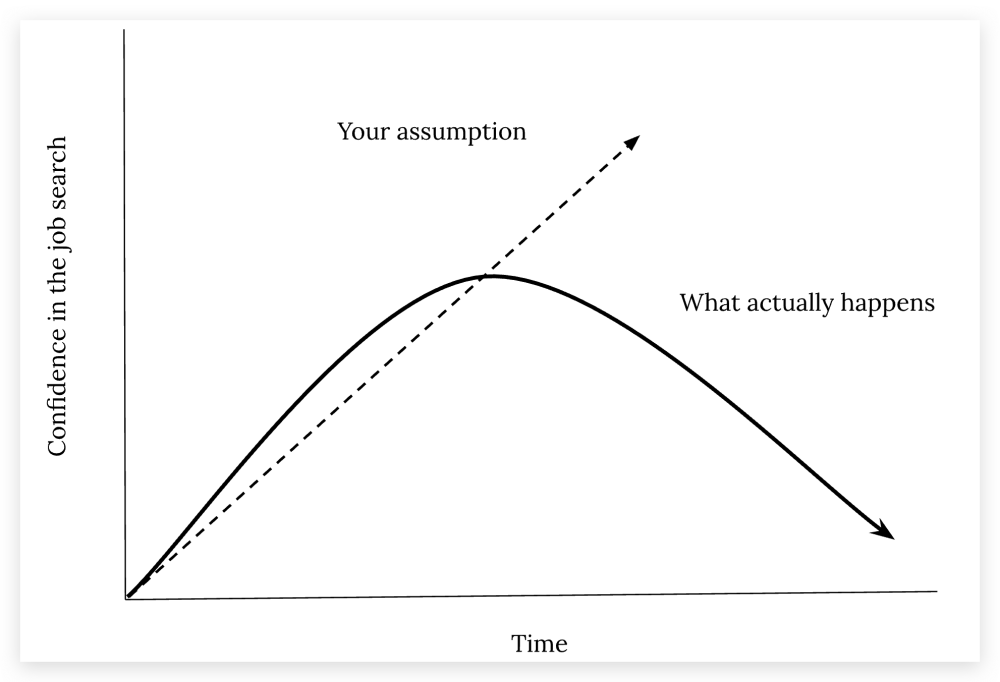Updated May 30, 2025
Career Coach: Top 3 tips for job seekers in Japan [2025]
In this article: 📝
Introduction to the “Career Coach” Column
Hi, I’m Eri, an Expat Career Coach based in Tokyo.
I was an expat in my 20s, then transitioned to HR, hiring candidates from around the world. Then I became the Lead Career Support at a coding bootcamp, supporting 300+ graduates finding tech roles in Japan.
At the beginning of 2023, after becoming a mother and getting certification as a coach, I launched Your Next Chapter Japan in hopes of extending support to more expats in Japan. We also want to help professionals outside of Japan seeking to land opportunities here to achieve their goals. This column is a collection of my advice, perspective, and some of my own stories.
Introduction
Where did January go? I thought I decided on a New Year's resolution and I’ve already spent 1 out of 12 months of the year. Does that sound like you too?
Getting a new job or relocating to a new place are some examples of goals people make at the start of the new year. It’s also common for early-stage job seekers to feel stuck during this phase.
Can’t seem to find the right job to apply for? Are you having second thoughts about even doing the job search? Here are 3 pieces of advice for you if you’re feeling stuck in your job search.
1. Do your Research but know when to move on
When you made up your mind that this year you were going to get a new job in Japan, at some point you may have found yourself typing, “Tech Jobs in Japan,” or “English-speaking tech jobs in Japan,” or something more specific like “Software Engineering jobs Tokyo”.
Maybe you went to LinkedIn and started looking at the jobs there… but somehow you haven’t been able to apply to any jobs yet.
Researching and getting to know the industry is typically advice that people give to job seekers when they’re just starting. This also makes a lot of sense. You should know what the current state of the industry is. However, something I often notice is people fall into the trap of over-researching.

Researching feels good because you learn something without having to put yourself in the hot seat. You also don’t get rejected from researching jobs and companies. The problem is that there’s usually a phase when the amount of time spent researching begins to negatively impact a job seeker’s confidence, which stops them from taking action.
To be clear, I’m not saying you shouldn’t research. It’s good to educate yourself. Especially if you’re new to the industry and location. There are well-written informational resources out there including this blog (How to find a job as a software developer in Japan). The key is not to get stuck in this phase of constant input.
To prevent yourself from getting stuck here are some actionable recommendations:
Instead of just researching, come up with specific questions beforehand. (Ex: What is the average salary of software engineers in Tokyo?)
Create a job search tracker. You can use something as simple as a spreadsheet. When you see a job opening that interests you, save it on the tracker. You can use it to keep track of your bookmarks and future applications.
Work on your resume while doing your research.
On that note, if you’re having a hard time finding a job to apply to, the key is to find something that interests you and matches your skill set to some extent. Don’t shy away from jobs that don’t match 100% with your experiences and skill set. You’ll learn a lot more about the team, the project, and the job itself during your application process.
2. Schedule slots of time to focus on the job search
There’s nothing glamorous about it but consistency does beget progress.
What’s often challenging about job hunting is that progress doesn’t always feel like progress. In the early stages of your job search, progress includes the rejections you receive. For some job seekers, a rejection is the uncomfortable message that they are not good enough to get another job. But in reality, if you decide to learn something from the application, it’s a sign of progress. What learning can you take and apply to the next application?
To maintain consistency it’s a good idea to utilize your calendar and book slots throughout your week. Here’s what scheduling a place and time for your job search might look like if you are currently working:
Let’s say you’re a commuter, then book 10 minutes during your commute so you can look for jobs and bookmark them. You can book another slot sometime (maybe during your lunch break) so that you can go back to the jobs you’ve bookmarked and choose the one you want to apply for. Find another slot after work. Spend this slot adjusting your resume to the job description. Use the same evening slot the next day to double-check your resume and cover letter, then finally apply.
Similarly, take a look at your calendar in the upcoming week and find slots of time you can use for your job search. Book an event in your calendar and make it clear what you’re doing at that time. Instead of “Job Hunting” you could call it “Bookmark 5 jobs” or “Write Work Experience Section of Resume”.
If you have a habit of applying to one job and then waiting to get back to applying again only after you’ve gotten rejected, having consistency will help you make continuous progress in your search without quickly burning out. It usually takes longer to send your first application, so allocate more time to completing this step. Once you get a couple of applications out, the amount of time and pressure of it generally decreases.
3. Picture what your life looks like after you’ve gotten the job
The final advice is for you to imagine what your life would look and feel like if you were to have that job already. Instead of strategic plans or ideas, allow yourself a judgment-free space to imagine what your life looks like and how imagining it makes you feel. Imagine details like, what time you might get up and what your morning routine would be like. What time would you start work? What would your work environment look like?
The thing that most job seekers fail to truly understand is that the job search is a process of external and internal reflection. You cannot succeed without an awareness of your own goal.
You cannot succeed in the job search without an awareness of your own goal.
What is it that you truly want? A clear vision of what you’re seeking will support you in every stage of your job search, especially in those tough moments.
Going back to the imagination exercise, once you’ve spent time envisioning your life after you’ve gotten that job, pay attention to how it impacts you as a whole. Do you feel more relaxed? Is your heart beating a little faster from excitement?
You may be surprised but for most people, a new job isn’t the actual goal. It’s how you feel living life with the new job. This means for example, if you feel more relaxed imagining your new life with the new job, the level of stress is a factor to be sensitive to during your search.
Getting a clear picture of what you want is also a potent remedy for when you get lost looking at too many job openings. Look carefully at the words used to describe the company and the job and check if they fit with how you see yourself working.
Conclusion
The search for a new opportunity comes with many thoughts, feelings, and as we all know, stress.
In this article, I shared some common traps, especially for early-stage job seekers that could be avoided or be brought to attention. If you’re just starting and looking around online, it’s crucial to notice when your research is becoming a barrier to your goal of finding a new job.
Coming up with specific questions, preparing a job tracking sheet, and simultaneously working on your resume are strategic steps you can take to avoid getting stuck. While it may not come as a surprise, being consistent is also a key in your job search. Scheduling dedicated slots of time for specific action steps will help create that momentum.
Remember that even rejections are a sign of progress. Finally, create a safe space to imagine how you would like to live your life after getting your job. This envisioning exercise will give you a valuable awareness of what you are looking for. It will also nurture and maintain clarity, resilience, and patience to help you face each stage of the job search.
Get Job Alerts
Sign up for our newsletter to get hand-picked tech jobs in Japan – straight to your inbox.






